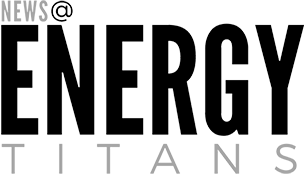CERAWEEK-U.S. Sen Joe Manchin opposes Ford partnership with Chinese battery maker

HOUSTON, March 10 (Reuters) – U.S. Senator Joe Manchin on Friday said he opposed allowing tax dollars that finance electric vehicle purchases to go to Chinese battery maker CATL through its partnership with U.S. automaker Ford Motor Co (F.N).
A 12% royalty that is included in the Ford-CATL partnership would send $900 of the $7,500 tax credit to CATL (300750.SZ)
, Manchin said in remarks at the CERAWeek energy conference.
The U.S. should not be assisting Chinese companies through its Inflation Reduction Act (IRA) funds designed to develop a domestic EV battery industry, he said.
“I’ll be damned if I’m going to give them $900 out of $7,500, to let it go to China for basically a product we started,” Manchin said.
CATL’s advanced and low-cost batteries could be reverse-engineered, he said, arguing the technology may have originated in the U.S.
“What’s good for the goose is good for the gander,” he said.
It was the first time that Manchin raised an objection to the Ford-CATL licensing agreement. He did not say whether he would seek to prevent Ford from accessing IRA funding for its battery development operations.
Manchin and Senator Lisa Murkowski said U.S. permitting reform is needed to achieve the goals of clean energy and chip-making incentives proposed by the Biden administration and approved by Congress.
The Biden administration should greenlight a ConocoPhillips oil development in northern Alaska, Murkoswki said, adding the project was needed for U.S. and partners’ energy security.
A decision is “imminent,” and could come at any hour, she said at the same conference.
Ford’s agreement with CATL is part of the U.S. automaker’s stated intent to boost annual EV production to 600,000 vehicles by late 2023 and more than 2 million by the end of 2026.
U.S Senator Marco Rubio has introduced legislation that would block tax credits for electric vehicle batteries produced using Chinese technology, and has called for the Biden administration to review the agreement.
Reporting by Ernest Scheyder and Stephanie Kelly; writing by Gary McWilliams; Editing by David Gregorio
Our Standards: The Thomson Reuters Trust Principles.









